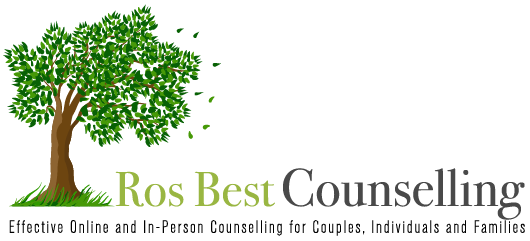So you took the step of getting married, saying “I will” or “I do” to your partner, ‘til death do you part. You love your partner. But there is trouble in paradise…
First Baby Coming Home…
You both wanted this baby. You love your baby. But you hadn’t anticipated that with your spouse, you would…
- Feel left out, that your spouse is so focused on the baby that they don’t feel like a spouse any more…
- Feel disrespected, that your spouse would insist on a different last name than you were expecting, or a different religion when they know how important family religion is in your family of origin, or a different language that you don’t understand…
- Feel so afraid, that they could have died in child-birth. You can’t lose that panicky feeling that they could die at any time, in a car accident, from an infection, from a crime, and you cannot bear that thought. You feel silly, so you can’t tell them that.
- Feel so angry at post-partum depression. So angry with yourself for feeling angry. You know your spouse is suffering, and it is not their fault; but you can’t help it, you just want to shake them and say “don’t you see all the gifts we have received in this baby??? Isn’t this what you wanted???”
- Be so impatient with your spouse, and with the baby. And the more impatient you get, the harder it is to contain your irritation and growing anger at… ? You can’t get a decent night’s sleep. It is unspeakable to feel this way, so you stuff it down and depression starts to take hold.
- Feel so terribly afraid for the baby. The baby has an abnormality that you really doubt you are up to dealing with. You can’t stand the thought of letting down the baby, your spouse, and perhaps God. Or maybe God is punishing you. The pain is unspeakable, so you hold it in. Your spouse feels alone with their sleeplessness, their fear, and now the loss of your warmth. This is untenable…
If any of these situations sound like you, please reach out for support from a professional Vancouver Marriage Therapist. Ask Ros Best to help you to tell your spouse your deepest fears, hopes, needs, and to reconnect with theirs as well, and figure out together how you will handle the complexities of life as this new family.
There’s Been an Affair. Now What?
An affair. You never thought this would happen to you.
Current research is clear: an affair does not have to mean the end of your marriage, nor putting up with a dead marriage now that the damage is done.
An affair can be anything that you keep secret from your spouse, that is damaging to the bond between you and your spouse. Specifically, an affair can be:
- physical and sexual
- sexual without actual touching (phone sex, cyber-sex, sexting)
- emotional (having intimate, confiding conversations with someone else, so that in some ways you feel closer to them than to your spouse)
- with an addiction (gambling, drugs, alcohol, pornography, etc.)
Relationships are a dance. One person stepped out of the dance with their spouse. For there to be marriage therapy, the affair must be terminated. Then comes the work of figuring out prompted the affair. Too often, one spouse was so busy with the new baby, a new job, care-giving for their elderly parent(s), that they had ceased to be emotionally available and bonded to the spouse who sought to feel better with the affair. Of course, there are lots of other possible influences, such as low self-esteem, poor impulse control, seeking more sexual release than was available with the spouse, and so on.
Bottom line? Trust must be re-established. Forgiveness sought. And the root cause – the weak bond between spouses – must be addressed. This is tricky enough that most couples will seek professional marriage therapy. I would recommend seeking a therapist trained in a strongly evidence-based approach such as Emotionally Focused Therapy or the Gottman Method Couples Counselling.
How to Navigate Job Loss or Renoviction
The best way to navigate any rough news is to navigate it together. Turn towards your spouse, tell them how you feel, ask them how they feel, before you get to “how we are going to solve this one”.
If you are not sure this conversation will end up with “we will get through this one together”, please seek the assistance of a professional marriage therapist such as Ros Best. You need to be able to count on a strong bond for you, your partner and your children to get through this well; Ros Best Counselling can help you to strengthen this bond.
How Much Support is the Right Amount of Support for Our Children?
Many spouses argue about how to raise their children, and how to support appropriately their adult children. As with all marriage conflict, start with the intention to navigate this question together, that the relationship will decide – try to leave score-keeping (“my turn to win”) behind. Again, turn towards your spouse, tell them how you feel, ask them how they feel, come up with a set of questions to be answered through reading, or criteria important to each of you, meanings, personal history soft spots to be considered before you get to trying to answer the question.
Are the children young? Consider reading Hold Onto Your Kids and The Step Program (also taught at the Adler Centre to parent groups over eight weekly sessions). Are the children older? Believe in their ability to meet challenges and learn from their mistakes. Progressively, become an interested, caring resource more than a guide as they grow up. Listen. Listen. And then listen some more, then speak.
Adult children need this approach even more. If you are feeling resentful – or they are – then you know that the manner of arriving at the decision needs sorting out. Tough love is less helpful than Consistent love with appropriate boundaries. Each person needs to be seated in their own driver’s seat, holding the steering wheel of their own life, not someone else’s steering wheel.
How about in blended families? What is the role of the step-parent in supporting the kids in their upbringing and in paying for family expenses? Again, sorting it all out takes a lot of listening, discussing meanings, family background and expectations, hopes and dreams, showing you’ve heard each other, and humility, kindness and humor.
If how much support to offer your kids is a bone of contention in your marriage, pop in for marriage therapy to fine-tune your shared parenting approach. At Ros Best Counselling, Ros will not tell you how to parent, but she will facilitate you and your spouse getting to that decision.
Navigating Getting Older … Sex, Drugs and Rock ‘n Roll!
As men get older, their levels of testosterone in the blood gently decrease, little by little. As women get older, right about the time when the kids might be hitting their teen years of hormonal change, women’s hormonal system begins to rock’n roll. The body, by fits and spurts, withdraws the calming feel-good hormones. Sleep becomes difficult (especially around 3am!), hot flushes kick in, so their partner’s snoring and warmth can make sharing the marital bed tricky for her. Another side-effect of the off-and-on, intermittent but decreasing levels of female hormones at midlife, is weight gain and feeling undesirable. Many women’s sex drive diminishes during the transition to menopause. This whole “change of life” stage lasts about 10 years.
How does a couple handle all this? With a sense of humor. By talking about it. By talking about what feels good these days. Play around with touch, get creative. Maintain intimacy of all kinds. Maintain your bond.
What if my spouse gets a chronic disease such as cancer, arthritis, or diabetes?
What if I or my spouse are too uncomfortable to talk about this?
Ask a therapist to help you talk openly about your needs, abilities and desires these days. If the focus really is on improving sex in your relationship, consider seeing a Sex Therapist (yes, that IS a specialization). If the concern has more to do with stages in life, chronic disease, or difficulty in speaking about your feelings, a Marriage Therapist with expertise in stages of life and in chronic disease and disability is who you want. Ros Best has expertise in these areas and would be pleased to support you and your spouse. Don’t wait, improve your marital bond today! Call Ros at 778-834-1867 or email her at rosbestcounselling@shaw.ca.






